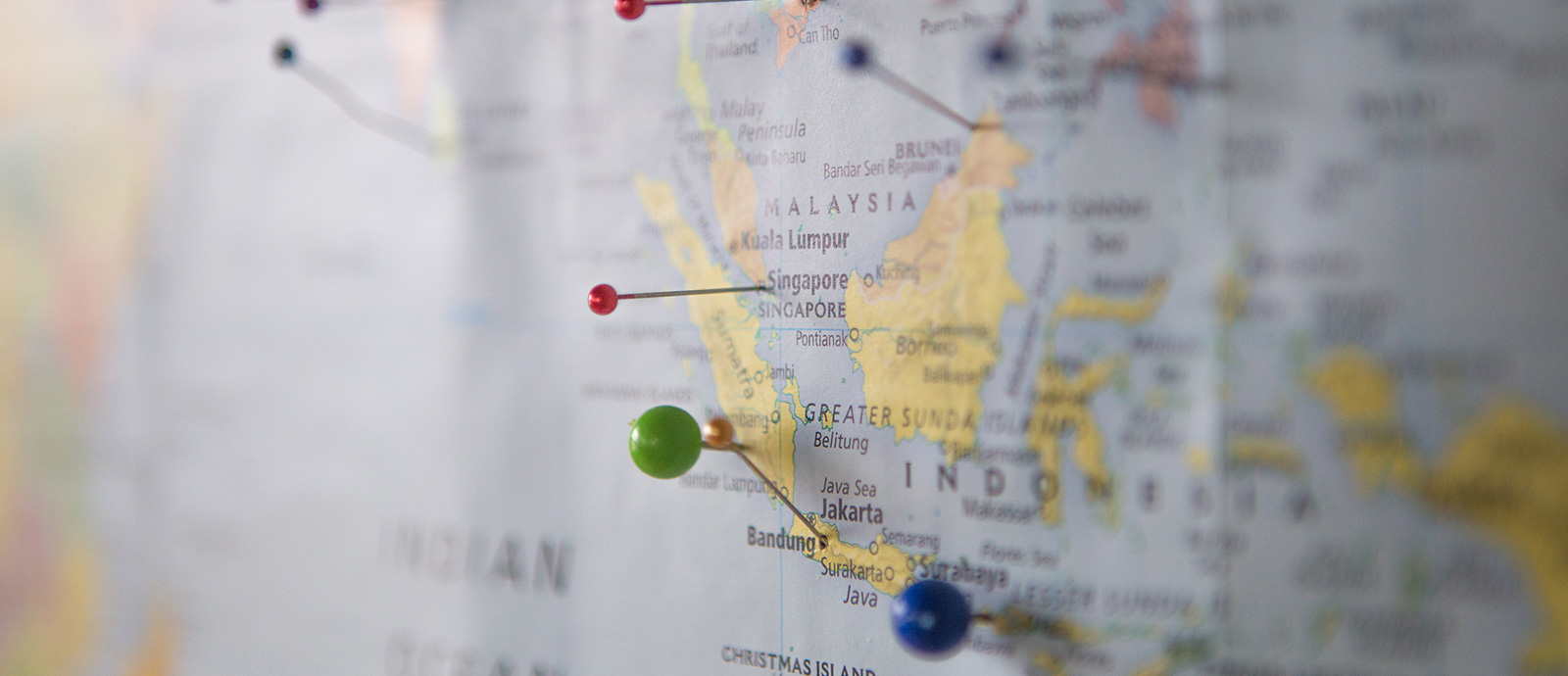What makes a prototypical Wall Street banker go from high stakes glad-handing to supporting local lenders in Asia, Africa and the Caribbean? Momentus (formerly IFCL) Senior Advisor, Michael Collins, did just that when he joined the Momentus team to advise Development Finance Institutions (DFI), supporting them to maximize their impact on local communities.
Michael has over 25 years of experience in leadership roles as a business head and risk professional in commercial banking and investment banking worldwide. He has held positions in the United States, the United Kingdom, Europe, and Canada, possessing diverse experience – having taken on the roles of Deputy Head and Chief Operating Officer (COO), USA, and European COO of the World’s Safest Universal Bank (Global Finance, 2014). He has been the primary regulatory contact in three jurisdictions, under seven regulatory bodies, and has led global regulatory compliance programmes across the globe.
Michael claims that the shift in his career was inevitable and that his personal theory of change is what ultimately led to his development banking epiphany, though he says it was the voracity of the change that took him by surprise. “I was in Toronto, where I had graduated from UofT years prior, and was immediately taken by a development economics course regarding peacebuilding in post-conflict countries. Before I knew it, I was requesting to do my own independent study just to learn more and study the critical and evolving issues more deeply”.
“During this time, the 9/11 attacks took place and America went to war. It was a bit surreal that I was learning about post-conflict peace building at the same time this total disaster of a war was going on. But the issues gripped me. So, I produced a paper on what should be done to build peace in Iraq. The objective was to answer the question “How best to create a lasting peace by bringing together the political, civil and economic aspects of a society in conflict? That was my first taste of advising from a more humanitarian lens.”
During this time Michael was invited to introduce the president of World Bank at a University of Toronto event. Michael was so engrossed by his passion for the SDGs that he became anxious. “I was so taken hold by these ideas. I was wracked with thoughts of how much needs to be done in such little time. I was simply riveted.”
Michael eventually returned to his senior corporate position in London but still could not shake the overwhelming urge to get involved in economic development. He decided to start meeting with NGOs to see how he could be put to use. It was then that Michael was given a career changing piece of advice.
“I was told that the most effective way to make a real and meaningful impact is to stick to my area of expertise and push to make change where I actually have some influence; where I could make the most impact”, says Michael
“I now knew that I needed to stick to the economic side of things, but at this point I still didn’t know on a practical level how I could apply my experience in localised business issues and leadership, risk mitigation and credit regulation to global development.”
It wasn’t until Michael met the CEO of Vision Fund International (World Vision’s microfinance arm operating in 35 developing countries) at a Canada Chamber of Commerce meeting that he got his answer. “We started meeting for lunch regularly to discuss the problems we were having at our individual institutions. Strategy, local leadership, systems issues, governance issues, local alignment to centralised issues – both of our organizations had a lot of overlap. I started to see ways in which my experience was needed beyond commercial ventures to regulate development finance.
“I was asked to join the Board of Directors for Vision Fund in 3 countries. Agreeing to that was my first material step – it made it real. At this point it became inevitable that I was beginning to transition away from commercial interest and into development.”
Despite this step, Michael was still dedicated to his position as a risk professional. “I was working in New York City throughout the 2008 financial crisis and as you can imagine, it was intense. I was seeing clients suffering. People were losing their businesses and their homes. Bankers were being looked at as criminals and terrible people. It was very stressful on both a professional and personal level.
“While all of this was going on, I became less inclined to stay in the corporate world and was growing my reach into development and microfinance – working on development impact bonds for specific projects that came my way. The opportunity for greater impact led me to say one day ‘I can do this’. I was finally ready to make a full-time leap.”
It was then that Michael took on a project funded by the Canadian government to advise the Central Bank of Vietnam on their capital standards regulation for their national banking systems in an effort to get them on board to meet international standards of banking. Michael was thrilled. “I was working for about a year in Hanoi doing exactly what I wanted to be doing – post-conflict peace building using my specific skillset.
“It was one of my colleagues on that project who later introduced me to Momentus. I was brought on as a consultant for an urgent project, and never looked back.”
Since joining the Momentus team, Michael has been able to run with his development mindset and has contributed to make real change through projects across the globe. To name just a few of his successes, Michael has advised Strategy Development with the Development Bank of Nigeria, led an investment strategy and implementation for the Social Security Board of Belize, and presented numerous training sessions on enhancing credit assessment and risk mitigation to a number of institutions. When the pandemic first hit earlier this year, Michael served as an expert advisor in the Momentus webinar series on the NDB response and risk mitigation. Currently, most of his passion lies in aiding the development of low-income and least developed countries, with a special interest in Africa.
“Our work can be equally demanding to corporate commercial ventures, but at the end of the day, I get to sleep knowing that I’m fulfilling my passion, and creating a greater, and necessary, impact.”



